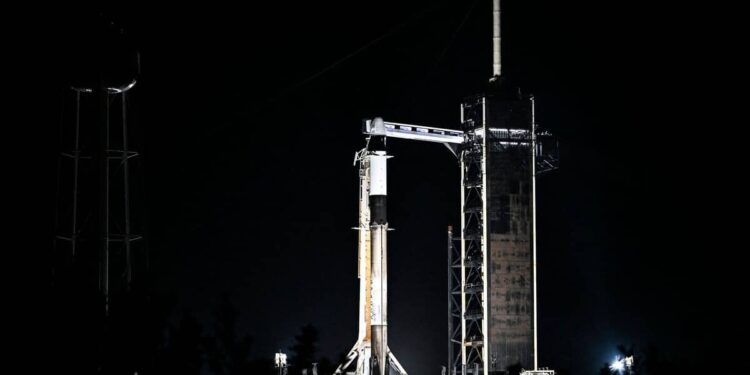SpaceX’s Falcon 9 rockets, the company’s most widely used, are grounded until further notice after a rare incident, US authorities announced on Wednesday, as two crews are due to board the vehicle shortly.
• Also read: First private spacewalk: SpaceX postpones mission due to helium leak
• Also read: Two astronauts from Boeing mission to return to Earth with SpaceX in February
This setback is likely to delay the launch of the Polaris Dawn mission, which aims to carry out the first private spacewalk in history. The launch has been postponed twice in recent days due to a technical problem and then the weather. A new date is now pending.
Before dawn Wednesday, a Falcon 9 rocket carrying the company’s Starlink satellites — a service that provides a satellite connection to the internet — blasted off safely from Florida.
After releasing its cargo, the first stage of the rocket descended as usual to land on a barge at sea. This process, SpaceX’s great innovation, allows the company to reuse this part of the vehicle and thus cut costs.
But video of the maneuver showed the first stage catching fire as it landed on the barge, then flipping to the side. It “flipped over,” billionaire Elon Musk’s company later confirmed in X, specifying that it was the 23e theft of the machine.
The US aviation regulator (FAA) then announced that it was calling for “an investigation” into the incident.
“Resumption of Falcon 9 flights is subject to the FAA determining that any system, process or procedure related to the anomaly does not affect public safety,” the agency said.
According to the trade press, the last time a Falcon 9 first stage failed to land was more than three years ago, and the company has since successfully completed the maneuver more than 260 times in a row.
In July, the rocket was already grounded for about two weeks after a separate incident: a leak in the rocket’s second stage. The FAA also conducted an investigation before allowing flights to resume.
At the end of September, a Falcon 9 rocket is to carry two astronauts to the International Space Station (ISS).
This mission, called Crew-9, is to ensure the regular rotation of the ISS crew, with one specific feature: it is also to bring back to Earth in February two other astronauts, whose initial ship, designed by Boeing, ultimately proved not to be safe enough for the return trip.



